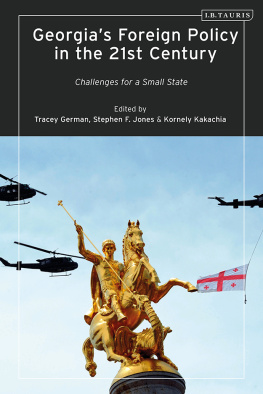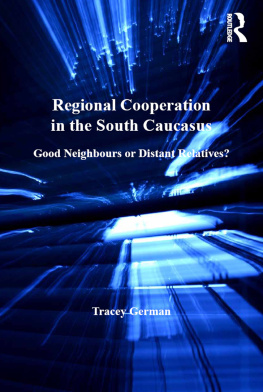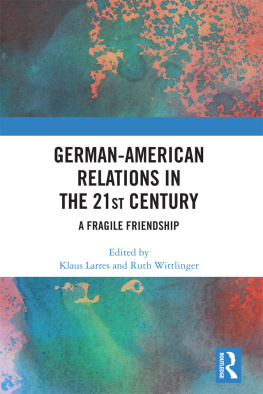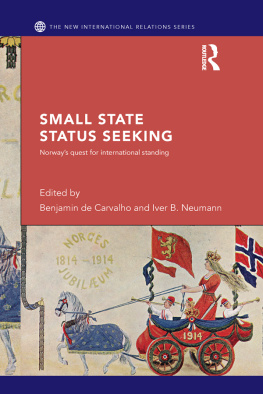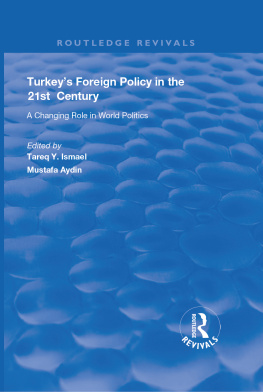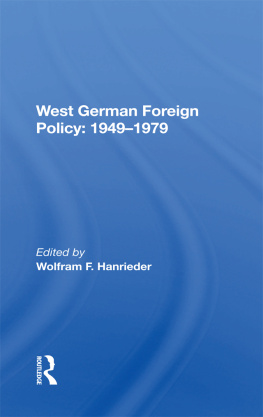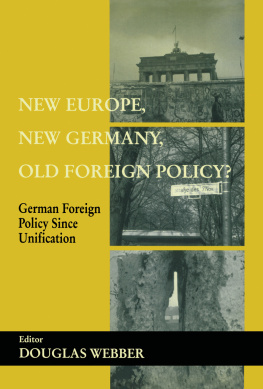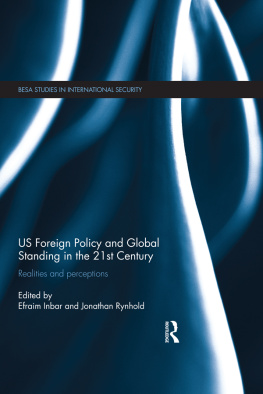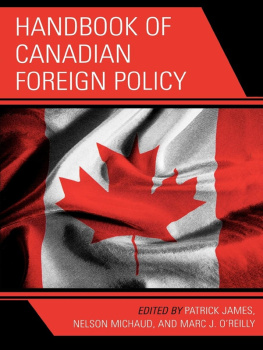David Aprasidze is Professor of Political Science at Ilia State University and team leader of the EU-supported action aimed at promoting Civil Society Sustainability in Georgia. He received his PhD from Hamburg University, Germany. He was a Fulbright scholar at Duke University in the United States. At various times, he has worked for public agencies and international NGOs operating in Georgia. He has expertise in higher education management and reform. His research interest focuses on political transformation and democratization issues.
Michael Hikari Cecire is the Director of the Eurasia Democratic Security Network (EDSN), an international fellowship programme and research platform that examines linkages between democracy and security. Cecire is also an Associate at the Institute for Middle East, Central Asia, and Caucasus Studies at the University of St Andrews, where he is a doctoral researcher. He is also a member of the editorial board for the journal Caucasus Survey, and is a regular lecturer on Black Sea regional issues at the US State Departments Foreign Service Institute. Cecire has previously served as an international security fellow at New America, as a non-resident fellow at the Foreign Policy Research Institute, as a visiting scholar at Columbia Universitys Harriman Institute, and in a variety of policy advisory and political risk analysis roles. He is a co-founder of the Georgian Institute of Politics in Tbilisi and has published in a variety of international media and peer-reviewed publications on issues of international security, Black Sea regional affairs, and democracy.
Tracey German is a Professor of Conflict and Security in the Defence Studies Department at Kings College, London. Her research focuses on Russias use of force in the post-Soviet space, conflict and security in the Caucasus and Caspian regions, and the impact of NATO/EU enlargement on Russias relations with its neighbours. Publications include Regional Cooperation in the South Caucasus: Good Neighbours or Distant Relatives? (Ashgate Publishing, 2012) and Russias Chechen War (Routledge, 2003), as well as articles in journals such as International Affairs, Journal of Southeast European and Black Sea Studies, European Security, Europe-Asia Studies, Central Asian Survey and Small Wars and Insurgencies.
Stephen F. Jones received his PhD from the London School of Economics and Political Science in 1984. He has taught at the universities of California, London and Oxford. He was a Research Fellow at Harvard University and a Senior Associate Member at St Anthonys College, Oxford. Since 1989 he has taught at Mount Holyoke College (USA). His books include Socialism in Georgian Colors: The European Road to Social Democracy, 18831917 (Harvard University Press, 2005), War and Revolution in the Caucasus: Georgia Ablaze (ed., Routledge, 2010), Georgia: A Political History since Independence (I.B. Tauris, 2013), and The Birth of Modern Georgia: The First Georgian Republic and Its Successors, 19182010 (ed., Routledge, 2013). He was the English Language editor-in-chief of kartlis tskhovreba (The History of Georgia), (Georgian Academy of Sciences and Artanuji Publishers, 2014), and principal editor for a three-volume set in Georgian of Noe Jordanias speeches and writing. Professor Jones is a Foreign Member of the Georgian Academy of Sciences and received an honorary doctorate from Tbilisi State University in 2012, and Ilia State University in 2018.
Kornely Kakachia is Professor of Political Science at Ivane Javakhishvili Tbilisi State University, Georgia, and Director of the Tbilisi-based think tank, the Georgian Institute of Politics. His current research focuses on Europeanization of Georgia, foreign policy analysis, security issues of the wider Black Sea area and comparative party politics. He was a recipient of IREX and OSI fellowships and was a visiting fellow at Harvard Universitys Black Sea Security programme (200910), Harriman Institute, Columbia University (2011) and The Johns Hopkins Universitys School of Advanced International Studies.
Levan Kakhishvili is a Doctoral Fellow in Political Science at Bamberg Graduate School of Social Sciences (BAGSS) at the University of Bamberg, where he researches the nature of party competition in Georgia, Moldova and Ukraine. His expertise includes Georgian foreign policy, and democratization in the post-Soviet context.
Alexander Kupatadze is Assistant Professor at the School of Politics and Economics, Kings College London. Prior to joining Kings College, Dr Kupatadze taught at the School of International Relations, St Andrews University. He held postdoctoral positions at George Washington University (201011), Oxford University (201213) and Princeton University (201314). His research specialization is transnational crime, corruption, public sector reform, informal politics and the crimeterror nexus. His regional expertise is post-Soviet Eurasia. His work has appeared in the Journal of Democracy, Theoretical Criminology, Non-proliferation Review, Central Asia Survey and other leading journals. His research has been funded by the Russell Trust (St Andrews University), the British Association for Slavonic and East European Studies (BASEES) and the Harry Frank Guggenheim Foundation.
Bidzina Lebanidze is a Postdoctoral Fellow at the Institute of Slavic Studies and Caucasus Studies at the Friedrich Schiller University Jena, Associate Professor of International Relations at Ilia State University and a Senior Analyst at the Georgian Institute of Politics. He obtained his doctorate in Political Science from the Free University of Berlin, and his Masters degree in International Relations from Tbilisi State University. Previously, he also held various teaching and research positions at the University of Bremen, the University of Freiburg, the Berlin School for Economics and Law, the Free University of Berlin and Konrad-Adenauer-Stiftung.
Salome Minesashvili is an analyst at the Georgian Institute of Politics and a lecturer at Freie Universitt Berlin, as well as at ESCP Europe. She holds a PhD in Political Science from Freie Universitt Berlin, an MSc in International Political Theory from the University of Edinburgh, and an MSc in Transformation in the South Caucasus from Iv. Javakhishvili Tbilisi State University. She has worked in multiple research projects on the topics of foreign policy analysis, identity politics, soft power politics, EUEastern Neighbourhood relations, and transformation processes in the former Soviet Union.
Lincoln A. Mitchell is a long-time observer of Georgian politics. He is the author of Uncertain Democracy: US Foreign Policy and Georgias Rose Revolution (Pennsylvania University Press, 2008), The Color Revolutions (Pennsylvania University Press, 2012), The Democracy Promotion Paradox (Brookings, 2016) and numerous academic and policy articles, briefings and columns regarding Georgia and the region. He is a scholar at the Arnold A Saltzman Institute of War and Peace Studies at Columbia University. Dr Mitchell also writes extensively on US politics, baseball and San Francisco history. He received his BA from the University of California, Santa Cruz and his PhD from Columbia University.


